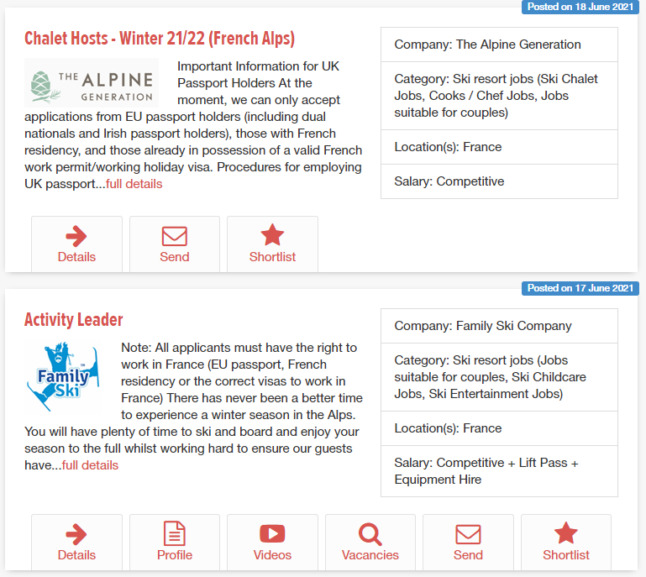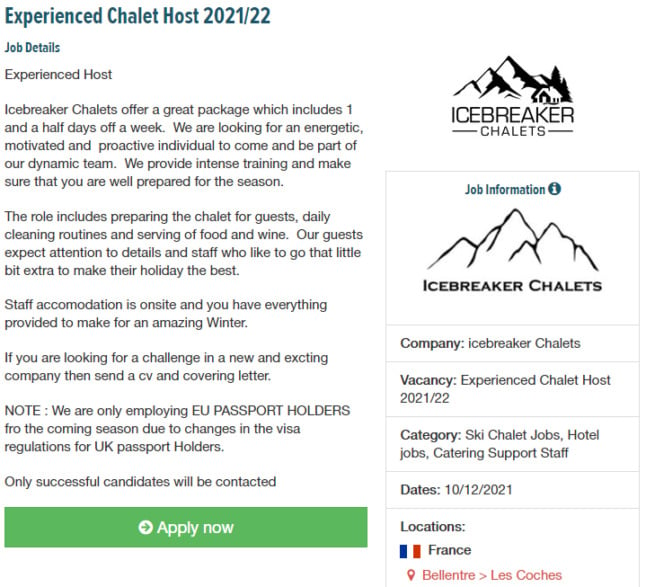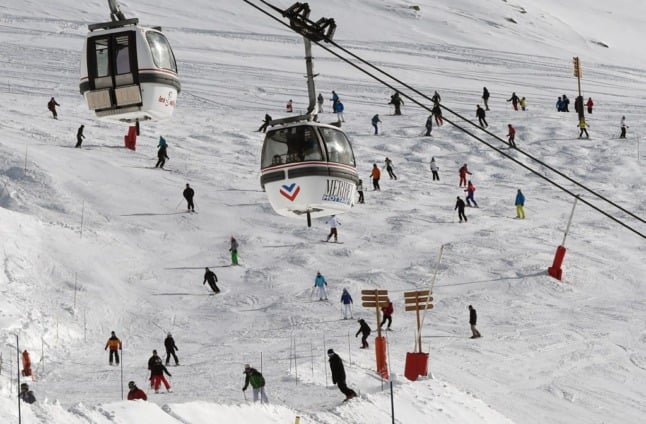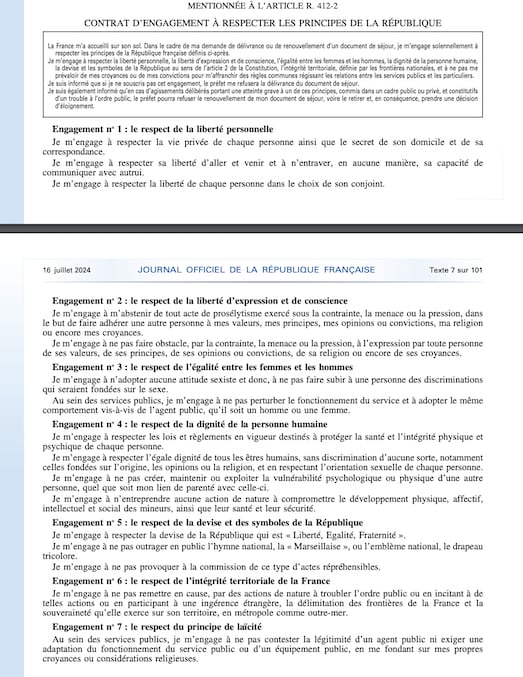Employers in the French ski industry have begun advertising for people work the 2021/22 season, but from ski instructors to chalet hosts dozens of adverts state that they will not consider applications from British people, unless they already have an EU passport or residency rights.
Since the end of the Brexit transition period, Brits wishing to work in France may need both visas and work permits – and it seems that employers looking for temporary seasonal staff have decided that this is simply not worth the hassle.
READ ALSO What are the rules on short-term and seasonal work in France?
One job ad said: “Procedures for employing UK passport holders post-Brexit are still in the process of being finalised, and therefore we unfortunately cannot accept any applications from UK passport holders until this is resolved.”

Trade body Seasonal Businesses in Travel (SBiT) has warned that up to 25,000 British seasonal worker jobs in the travel industry will be lost as a result, many of them contracted by UK-based companies.

It is easier for many businesses in France simply to find workers who have the right to work in the EU in the first place, rather than having first having to prove that no French worker wants to do the job by advertising the position at Pôle Emploi for eight weeks; then finding a UK worker, and arranging a work permit and visa – all for a few months of work.
If you are coming to France to work you may need both a visa and a work permit depending on the type and duration of your work – full details HERE.
These rules refer to all short-term and seasonal work, including people who want to come and work during the grape-picking season or work over the summer in holiday or tourism related jobs.




 Please whitelist us to continue reading.
Please whitelist us to continue reading.
Argy bargy about ski moniteurs/monitrice from the UK , USA , NZ etc has been going on for years. It was originally union motivated or at least by a wish to reserve the jobs for the Fr. (and Swiss) nationals trained in Fr. Because many visitors to Fr. ski resorts were anglophones the resistance did not survive the entry of the UK to the EU. Thomas Carr